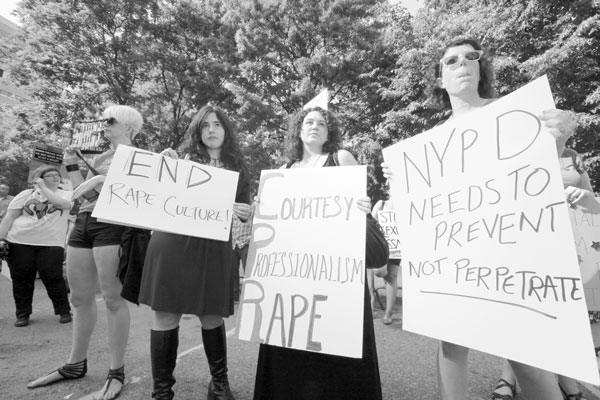
Betty Dukes
When my partner and I were on our honeymoon, in upstate New York, we were craving a set of playing cards. We drove around this big “small town” and saw a familiar sign: “Wal-Mart.” Unperturbed, my partner drove right into the parking lot. I told him in no uncertain terms that I wasn’t going in and he wasn’t either. He started laughing, but it died in his throat when he saw the scowl on my face.
In 2005, I assisted a law school professor on a paper she was writing on the issues of employment-based sex discrimination. My task was to read through hundreds of declarations by women who either worked or work at Wal-Mart as part of a class action suit against the world’s largest private sector employer and summarize each declaration. These women not only had the courage and conviction to come forward, but many did at the expense of being chastised by their community.
Monday’s Supreme Court ruling in Wal-Mart v. Dukes essentially destroys class actions against corporate America. As a result, the most marginalized sector of the labor force – working-class to poor women-will suffer the most.
In rural and small town America, Wal-Mart is one of the biggest, if not only, sustainable employer. While reading the declarations, I learned of single moms who sustained a family of four. Many of these women looked at Wal-Mart as a place to grow, to become educated, and create a better life for their family. They thought the story of Sam Walton, an up-by-his-bootstraps narrative revered by Wal-Mart as the archetype of the American dream, would apply to them. But theirs was a dream deferred, as they watched their male cohorts, who often worked the same amount of hours, obtain higher pay and quicker promotions.
With the Supreme Court’s decision, the last vestiges of that dream may have vanished. True, the Court did not decide the substantive issue of whether Wal-Mart discriminated on the basis of gender. But by preventing women from forming a class, they eviscerated the only effective tool in confronting a corporation whose revenues dwarf the GDP of many small countries. Now, each individual class member will have to come forward and sue Wal-Mart (an unlikely scenario), or the 1.6 million women will need to create smaller classes based on commonality other than gender. In the latter scenario, it is almost certain that this class too will be challenged, and challenged again, until the class is so small, making it not worth the money and effort.
Sadly, Monday’s decision follows a long history of rejecting gender as a potential class against corporations. Decisions like Wal-Mart urges us to think of how we cannot rely on the legal system to recognize bias in corporate structures. The power is up to the consumers, advocates, journalists, activists, artists to make Wal-Mart, and other corporations listen to their constituents. So, we found playing cards in a locally run business a few blocks from the glowing Wal-Mart sign.

(Photo Credit 1: New York Times / Reuters/ Larry Downing) (Photo Credit 2: BusinessWomen)
